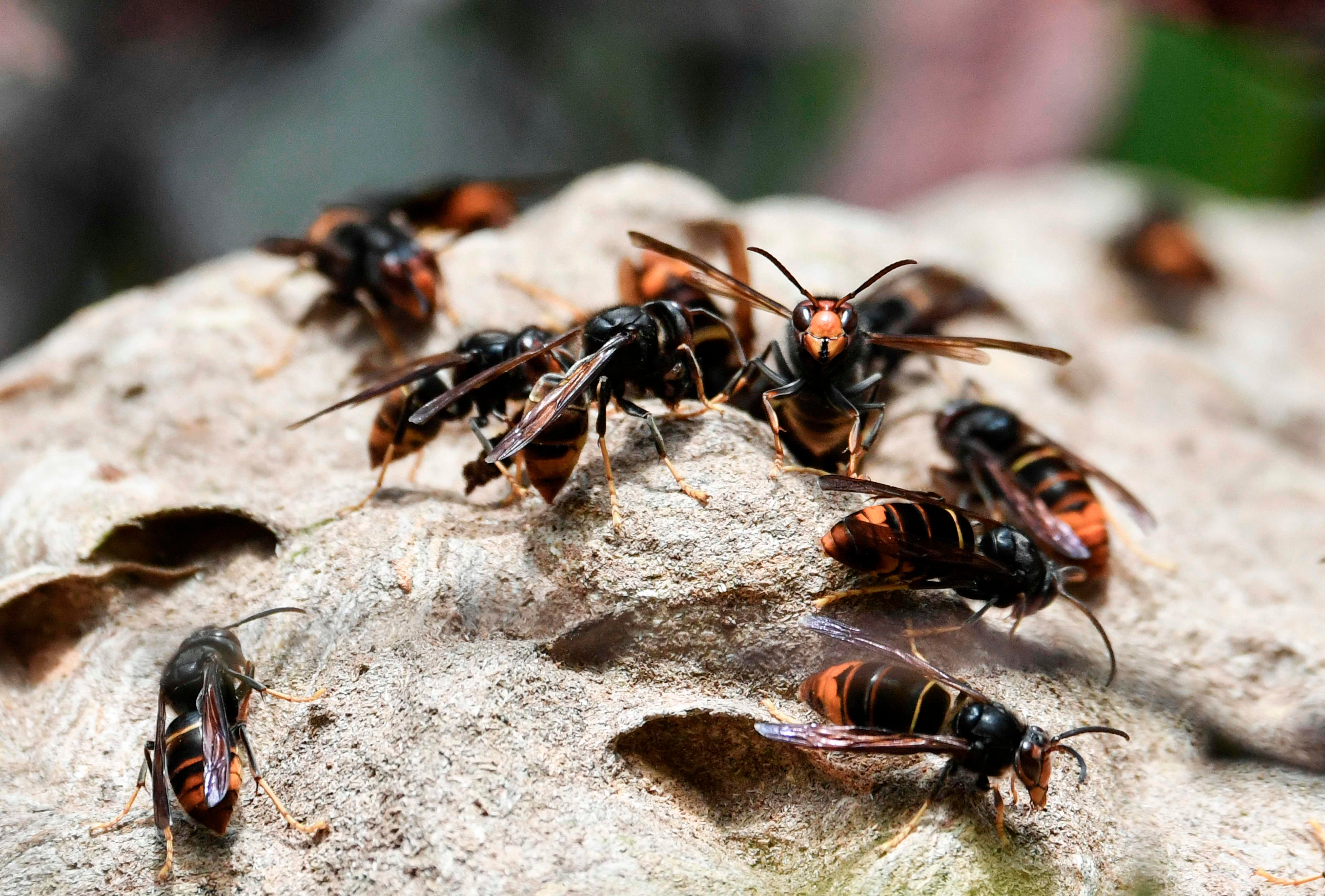Alert over bee-eating Asian hornets that threaten UK food security as queens seen overwintering for first time
People asked to watch out for species spotted in record numbers last year in Britain

Your support helps us to tell the story
From reproductive rights to climate change to Big Tech, The Independent is on the ground when the story is developing. Whether it's investigating the financials of Elon Musk's pro-Trump PAC or producing our latest documentary, 'The A Word', which shines a light on the American women fighting for reproductive rights, we know how important it is to parse out the facts from the messaging.
At such a critical moment in US history, we need reporters on the ground. Your donation allows us to keep sending journalists to speak to both sides of the story.
The Independent is trusted by Americans across the entire political spectrum. And unlike many other quality news outlets, we choose not to lock Americans out of our reporting and analysis with paywalls. We believe quality journalism should be available to everyone, paid for by those who can afford it.
Your support makes all the difference.Asian hornets that prey on honeybees, threatening British food supplies, have been spotted in England before the season peaks and could gain a foothold in the UK, scientists have warned.
For the first time, UK experts have seen evidence this year of yellow-legged hornet queens over-wintering.
The invasive species was sighted in record numbers in the country last year, prompting experts to issue a plea for people to be vigilant this year and report any sightings, amid fears of a surge in the species.

Asian hornets, also known as yellow-legged hornets, can badly harm native pollinator insects, including much-loved honeybees, threatening food security and ecosystems, ecologists say.
When their nests are found, ecologists destroy them.
Sightings usually peak from September onwards, when there are more colonies, and people are being urged to report any sightings on a phone app.
The species, which spread from Asia to Europe in a pottery consignment sent to France 20 years ago, was first spotted in Britain in 2016.
Last year, there were 72 confirmed sightings, and so far this year there have been 25, and one nest destroyed.
Since 2016, in all there have been 126 confirmed Asian hornet sightings in Britain, including 89 nests, which were all destroyed.
Without early detection and a rapid response, the species could gain a foothold in the UK, the UK Centre for Ecology & Hydrology (UKCEH) is warning.

The hornet has spread largely in southeast England, in Kent, Sussex, Surrey, Hampshire and London, but also with isolated confirmed sightings in southwest England and as far north as Yorkshire and Northumberland.
Ecologists warn that except for parts of Scotland, all of Britain has a suitable climate for yellow-legged hornets.
“Without countermeasures, their spread could be rapid through natural dispersal,” it warns.
The yellow-legged hornet should not be confused with the slightly larger European hornet, which is a valued part of UK wildlife, according to the ecology centre.
Asian hornets also have a dark abdomen with a band of yellow, while native hornets’ abdomens are predominantly yellow.
They are also not active at night, while European hornets are drawn to lights.

Professor Helen Roy, ecologist at UKCEH and the University of Exeter, said: “Evidence of overwintering yellow-legged hornet queens is concerning, but that doesn’t necessarily mean we have an established population here in the UK.
“The strategy is to destroy nests to prevent queens from spreading, and so the role of the people in reporting potential sightings through the app is critical so we can pass that information onto the National Bee Unit to respond as quickly as possible.
“Citizen scientists provide valuable information on the presence of yellow-legged hornets across the UK.
“Even though only a fraction of reports are confirmed sightings, every record counts and ensures that the few confirmed sightings are managed effectively.
“We’re also seeing an increase in the quality and quantity of photos uploaded to the app so we can assess the records more efficiently.”
The Asian Hornet Watch app includes identification guides.
Join our commenting forum
Join thought-provoking conversations, follow other Independent readers and see their replies
Comments